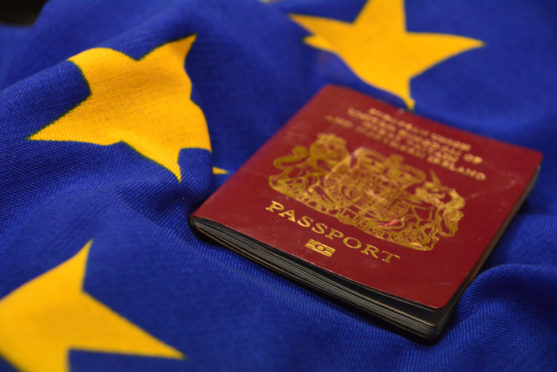
Thousands of kidney patients who rely on essential treatment in the EU when they travel will have to pay hundreds of pounds a week in the event of a no-deal Brexit, a charity has warned.
Haemodialysis, a form of dialysis which costs around £300 per session, is not covered by travel insurance as it is a planned treatment for a pre-existing condition.
UK patients will immediately lose their rights to access treatment in another EU country if the UK leaves without a deal on October 31.
If no reciprocal healthcare arrangements are made, UK haemodialysis patients will not be able to travel in Europe unless they pay about £900 a week for the essential sessions, according to Kidney Care UK, the UK’s leading kidney patient support charity.
The charity and the University of Sheffield have published a report outlining the impact a no-deal Brexit would have on dialysis care for kidney patients visiting Spain, France, Ireland, Italy and Greece.
These are the countries most-visited by dialysis patients known by the charity.
Fiona Loud, Kidney Care UK policy director, said: “Every kidney patient should be able to travel but if we do not have reciprocal healthcare arrangements with the EU post-Brexit, this will be severely curtailed for those on haemodialysis.
“With the UK still to reach healthcare agreements with any EU countries, patients have been left in limbo.
“With less than two months to go, thousands of kidney patients still do not know if they will be able to travel in Europe after Brexit.
“Without comprehensive agreements, most of the 25,500 kidney patients relying on haemodialysis will no longer be able to go to the EU due to the crippling costs of treatment.
“This is simply not acceptable. We need the Government to address the issue of reciprocal healthcare as a priority.”
Around 25,500 kidney patients currently rely on haemodialysis in the UK, according to the UK Renal Registry.
The report said there are alternative possibilities for accessing treatment in the event of a no-deal Brexit, but that none of these are certain.
The UK could secure bilateral agreements with EU member states, or rely on domestic law in the country being visited.
Some EU member states, including Ireland, Spain, Italy, France and Greece, have already passed domestic legislation in case of a no-deal Brexit scenario.
The report said: “It is unclear whether the UK Government will be successful in its wishes to continue the rights currently enjoyed through the reciprocal healthcare agreements in place prior to Brexit.
“It is also unclear whether individual EU member states will be able to negotiate reciprocal healthcare agreements with the UK, or whether, lawfully, the EU must negotiate these as a bloc.”
The report added that the willingness of some countries to adopt domestic legislation entitling UK nationals to healthcare in their country was a positive step but that, regardless, kidney dialysis patients will face significant drawbacks to access.

Enjoy the convenience of having The Sunday Post delivered as a digital ePaper straight to your smartphone, tablet or computer.
Subscribe for only £5.49 a month and enjoy all the benefits of the printed paper as a digital replica.
Subscribe